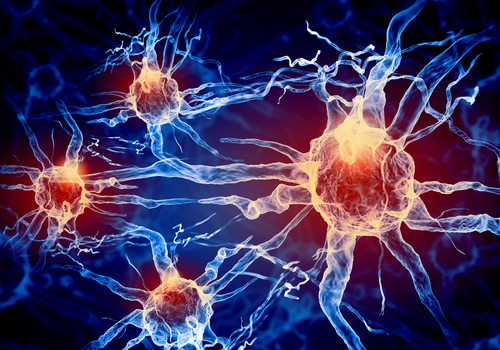Hormones 101: What You Need To Know

We’re heard the term “hormones” since our early teens. Many individuals associate hormones with the reason you start to get acne as a teen or the reason women go through menopause. But, you need to answer the questions, what are they exactly, and what do they do?
What are Hormones?
According to Everyday Health, hormones are chemicals that help one part of the body communicate with the other. Hormones are released throughout the body by glands to communicate signals with specific organs, tissues, and cells. This communication results in many functions, including:
- Prompting cell or tissue growth and development
- Helping with food metabolism
- Initiating and maintaining sexual development and reproduction
- Maintaining body temperature
- Regulating mood and cognitive functioning
Endocrine glands, glands that produce hormones in your body, are part of the endocrine system, whose job it is to secret hormones directly into the blood. Some major glands include the pineal gland, pancreas, pituitary gland, the testes, the ovaries and the liver.
Skin Health
When it comes to your skin, the reason why hormones are commonly associated with teens, acne and puberty is because, “Hormones are responsible for the growth of the oil glands in the skin. These are not developed in young children and are part of the release of hormones that occurs during puberty. Once the oil glands are formed, an individual will then become susceptible to acne.”[1]
[Read more about how you can protect your skin with Super Foods by clicking here!]
From Pregnancy to Menopause
In terms of hormone levels for women, “When a woman is pregnant or when they are going through menopause, the levels of hormones in their body will change.”[2] Menopause occurs as your ovaries age and release fewer hormones. The left over hormones cannot perform to their highest potential to release estrogen, progesterone and testosterone, which creates a hormone imbalance.
There are many factors that affect the hormones in your body. “Age, genetic disorders, diseases, exposure to environmental toxins, and even disruption of your body’s natural rhythm can harm the body’s ability to produce hormones in the exact amount needed.” There are many tests your doctor can perform that measure the hormone levels in your body, which include hormones from your blood, urine and saliva.
The U.S. National Library of Medicine advises, “If your hormone levels are too high or too low, you may have a hormone disorder. Hormone diseases also occur if your body does not respond to hormones the way it is supposed to. Stress, infection and changes in your blood’s fluid and electrolyte balance can also influence hormone levels. In the United States, the most common endocrine disease is diabetes.”
Natural Options for Hormone Regulation in Women and Men
Carolyn Dean, MD, ND, former Director of Nutrition for InVite® Health, suggests natural options for women’s hormone regulation – “Women need an alternative to synthetic hormone replacement therapy (HRT). Studies using isoflavones (Soy Isoflavones) for menopause show heart and bone protection, and relief from menopausal symptoms. Many studies show Black Cohoshis, an herb with a long history of use for women’s problems, may help relieve hot flashes, night sweats, and mood changes. L-Theanine, an amino acid derived from the green tea plant, has special properties that increase alpha-waves associated with mental and physical relaxation and a reduction in symptoms of stress and anxiety, without creating drowsiness. In combination, these nutrients may relieve the discomfort, frequency and intensity of hot flushes, maintain the health of the skin and sex organs, promote the strength of bones, help control blood fats, and protect sensitive brain tissue.”
Nicole Crane, BS, NTP, explains that there is a lot that can be done holistically and nutritionally to improve prostate health and testosterone balance –
- Zinc is great for prostate health and healthy hormone balance for men and it also supports immunity so it even has a protective effect on prostate tissue
- Saw palmetto is a classic herb for the prostate, as it supports a normal prostate size as well as healthy hormone balance.
- Pygeum reduces inflammation in the prostate and inhibits prostate growth factors, which are substances implicated in inappropriate prostate enlargement. Saw palmetto and pygeum are like Batman and Robin for prostate health.
- Nettle offers a series of complex effects on the prostate, mainly by balancing the hormones that triggered the prostate to grow in the first place.
- Lycopene is a powerful antioxidant, as it protects the body from free radicals that aim to destroy body tissues to regain stability. Not only does lycopene tend to go towards and accumulate in the prostate but, once present there, it seems to have a very protective effect over prostate tissue and the viability of sperm overall
For more information on healthy hormone balance, read Nicole Crane, BS, NTP’s full article on Prostate Health and Hormone Balance by clicking here!
[1] http://www.clearskinstudy.com/what-hormone-causes-acne/
[2] http://www.clearskinstudy.com/what-hormone-causes-acne/